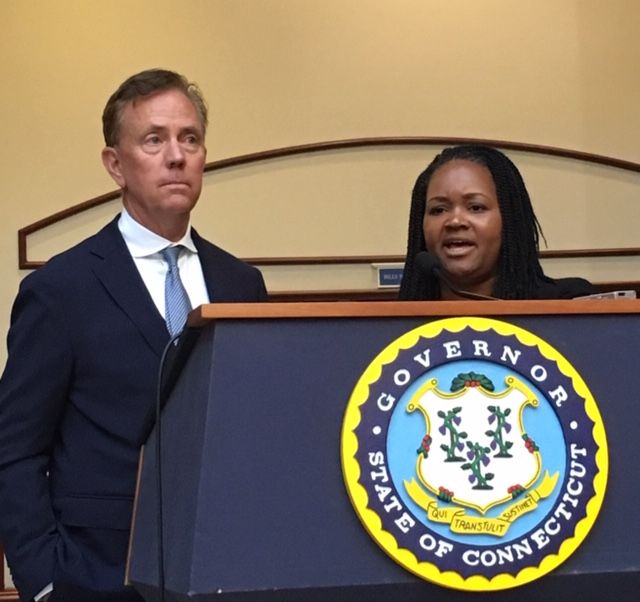Processing Your Payment
Please do not leave this page until complete. This can take a few moments.
-
News
-
Editions
-
- Lists
-
Viewpoints
-
HBJ Events
-
Event Info
- 2024 Economic Outlook Webinar Presented by: NBT Bank
- Best Places to Work in Connecticut 2024
- Top 25 Women In Business Awards 2024
- Connecticut's Family Business Awards 2024
- What's Your Story? A Small Business Giveaway 2024 Presented By: Torrington Savings Bank
- 40 Under Forty Awards 2024
- C-Suite and Lifetime Achievement Awards 2024
- Connecticut's Health Care Heroes Awards 2024
-
-
Business Calendar
-
Custom Content
- News
-
Editions
View Digital Editions
Biweekly Issues
- April 29, 2024
- April 15, 2024
- April 1, 2024
- March 18, 2024
- March 4, 2024
- February 19, 2024
- February 5, 2024
- January 22, 2024
- January 8, 2024
- + More
Special Editions
- Lists
- Viewpoints
-
HBJ Events
Event Info
- View all Events
- 2024 Economic Outlook Webinar Presented by: NBT Bank
- Best Places to Work in Connecticut 2024
- Top 25 Women In Business Awards 2024
- Connecticut's Family Business Awards 2024
- What's Your Story? A Small Business Giveaway 2024 Presented By: Torrington Savings Bank
- 40 Under Forty Awards 2024
- C-Suite and Lifetime Achievement Awards 2024
- Connecticut's Health Care Heroes Awards 2024
Award Honorees
- Business Calendar
- Custom Content
Lamont digs in as CT budget talks remain in gridlock
 Mark Pazniokas | CT Mirror
Lamont and his budget adviser, Melissa McCaw.
Mark Pazniokas | CT Mirror
Lamont and his budget adviser, Melissa McCaw.
Gov. Ned Lamont dug in Thursday afternoon in budget talks with legislative leaders, insisting he wouldn’t sign a package that subverts the spending cap or borrows excessively.
The Democratic governor, a fiscal moderate, made his comments during a televised news briefing six hours after House Speaker Matt Ritter, D-Hartford, warned his chamber was ready to vote on a budget — with or without Lamont’s seal of approval.
“I want an honestly balanced budget,” Lamont said during a 4 p.m. press conference. “You can’t play games, you can’t do gimmicks. That’s what’s gotten us into trouble [for] the last generation or two.”
Spending cap remains a sticking point
The governor, a Greenwich businessman, balked at a proposal from the Appropriations Committee to effectively move more than $300 million per year in sales tax receipts outside of the regular budget — a move that would exempt this spending from the state spending cap.
Lamont and his budget director, Melissa McCaw, said the administration’s budget proposal for the next two fiscal years — supplemented by more than $6 billion in new federal coronavirus relief funds — would translate into “unprecedented” aid for Connecticut cities and towns over the next two fiscal years.
But many municipal leaders, and the legislature’s Democratic majority, counter that school districts and local governments are under equally unprecedented fiscal pressure because of the pandemic.
State pension costs have placed increasing pressure on town aid and many other programs since the last recession ended in 2009, and that situation is expected to worsen over the next decade.
Lamont said he’s willing to compromise somewhat to solve the spending cap issue, but he added that the exemption that Democratic legislative leaders are seeking goes too far.
The governor has his own checkered past with the spending cap, which is designed to keep most appropriations in line with statewide growth in household personal income. During his first year in office, Lamont sought and received legislative approval to exempt his education partnership with hedge fund billionaire Ray Dalio’s philanthropic arm from the spending cap.
Dalio had pledged to contribute $100 million in total over five years to support low-performing public school districts, provided the state matched that investment dollar-for-dollar.
Senate President Pro Tem Martin M. Looney, D-New Haven, said Lamont’s comments about legislative “gimmicks” is unfair given some of the administration’s proposals.
The governor proposed restructuring payments into the state’s pension fund for municipal teachers which would save more than $170 million over the next two fiscal years combined — but also would increase long-term costs over the next three decades by more than $300 million.
“If you’re going to talk about responsible budgeting, that’s not going in that direction,” Looney said.
The Senate leader also said Lamont needs to appreciate that the billions of dollars in federal aid, though appreciated, expires after 2024. “It is certainly finite, and it isn’t something you can build a consistent government program around,” Looney said.
Governor says 10-year borrowing plan for urban investments is too big
The governor said he also has issues with Ritter’s proposal to borrow $200 million annually for the next decade to invest in capital projects and programs in Connecticut’s poorest cities.
Lamont said a three-year commitment is reasonable, after which the program could be reassessed and possibly extended.
But Connecticut already outranks most other states in bonded debt per capita. And while interest rates have fallen sharply over the past year — making some additional borrowing affordable — the state cannot repeat the mistakes of the past, the governor said.
“What happens if we have an 18% inflation rate in two years?” he said. “You’ve got to give us some flexibility.”
Ritter did not comment immediately after the governor’s press conference.
But the speaker, a Hartford Democrat, had warned at 10 a.m. Thursday that a budget vote was imminent, even if Lamont wasn’t ready to support the package.
The regular 2021 General Assembly session is set to adjourn at midnight Wednesday, and the speaker said majority Democrats in the House overwhelmingly support the compromise plan legislative leaders sent to the governor. That plan includes state income tax cuts for the poor and middle class, expands Medicaid eligibility and boosts funding for social services and nursing homes — in addition to the expanded aid for cities and towns.
Ritter had proposed the urban borrowing to help unite Lamont — a Greenwich businessman — and urban Democratic lawmakers frustrated by the governor’s fierce opposition to raising state taxes on Connecticut’s wealthy.
The Finance, Revenue and Bonding Committee in mid-April had proposed two state income tax surcharges on households earning more than $500,000, and a new levy on digital media ads, to pay for urban investments.
The compromise budget Ritter brought to Lamont scraps those tax hikes, but it does include more borrowing than the governor previously has supported.
Lamont said after the committee adopted its proposal that he wouldn’t sign a new state budget that included this initiative. These tax hikes, Lamont said, would hinder Connecticut’s economic recovery from the coronavirus pandemic, and increases aimed solely at the wealthy would prompt them to move out of state.
“We don’t need more taxes, but we do need more taxpayers,” the governor said Thursday, repeating an oft-used phrase.

2022 Giving Guide
This special edition informs and connects businesses with nonprofit organizations that are aligned with what they care about. Each nonprofit profile provides a crisp snapshot of the organization’s mission, goals, area of service, giving and volunteer opportunities and board leadership.
Learn more
Subscribe
Hartford Business Journal provides the top coverage of news, trends, data, politics and personalities of the area’s business community. Get the news and information you need from the award-winning writers at HBJ. Don’t miss out - subscribe today.
Subscribe
2024 Book of Lists
Delivering Vital Marketplace Content and Context to Senior Decision Makers Throughout Greater Hartford and the State ... All Year Long!
Read Here-
2022 Giving Guide
This special edition informs and connects businesses with nonprofit organizations that are aligned with what they care about. Each nonprofit profile provides a crisp snapshot of the organization’s mission, goals, area of service, giving and volunteer opportunities and board leadership.
-
Subscribe
Hartford Business Journal provides the top coverage of news, trends, data, politics and personalities of the area’s business community. Get the news and information you need from the award-winning writers at HBJ. Don’t miss out - subscribe today.
-
2024 Book of Lists
Delivering Vital Marketplace Content and Context to Senior Decision Makers Throughout Greater Hartford and the State ... All Year Long!
ABOUT
ADVERTISE
NEW ENGLAND BUSINESS MEDIA SITES
No articles left
Get access now
In order to use this feature, we need some information from you. You can also login or register for a free account.
By clicking submit you are agreeing to our cookie usage and Privacy Policy
Already have an account? Login
Already have an account? Login
Want to create an account? Register
Get access now
In order to use this feature, we need some information from you. You can also login or register for a free account.
By clicking submit you are agreeing to our cookie usage and Privacy Policy
Already have an account? Login
Already have an account? Login
Want to create an account? Register





0 Comments